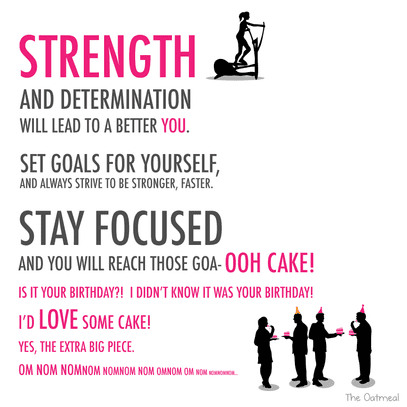The end of the year usually brings with it moments of reflection and introspection. We think about the things that happened over the course of the year, things that we wanted to accomplish, and take stock of ourselves and our place in life.
If you’re anything like me, you tend to feel disappointment over all of the things that you never got around to or completed. You think, “I’ve had so much time to do X, Y, and Z — why didn’t I just do it?” Or maybe there were resolutions that never quite got off the ground.
But we tend to overlook just how difficult meaningful change is to do. We forget about the power of inertia and how it has held us back in the past. Or we may not even be completely aware of just what it takes to actually accomplish our goal.
We think that we just need to want it more this time, as if behavior change is simply a matter of how bad we desire something, instead of a set of smart strategies. Yes, mindset is important, but without the tangible tactics, we just keep spinning our wheels and feeling frustrated.
Here are a few of the most common resolution- and goal-setting mistakes that people make:
1. You Choose Things You Think You Should Do.We all have this nagging voice in the back of our heads reminding us of all the things we should do — exercise more, eat less junk, drink more water, get more sleep, read more, create and stick to a budget, call our mom more often. Should, should, should.
But nothing ultimately changes unless it’s something that you actually want to do. Some sort of desire and/or enjoyment is what gets you going when motivation falls to zilch. According to Kelly McGonigal, author of The Willpower Instinct, a goal, in order to be successful, needs to be something that aligns with your values and priorities and strengthens who you already are. So if you’re a lifelong couch potato who has never liked running, setting a goal to run a marathon maybe isn’t the best idea. Not to say that this never happens, but it’s just that much more unlikely (and probably needlessly miserable).
2. You Try to Make Grandiose Lifestyle Overhauls.
Believe me, I know how tempting it is to make big goals and plans for the future. We all want that big result, the amazing transformation. Not to mention the immediate gratification of fast weight loss and sore muscles. Nothing makes us feel more productive and successful.
Unfortunately, the research (and my personal and professional experience) just doesn’t back up the efficacy of this approach. Baby steps, on the other hand, are the surest path to consistency and thus results. By focusing on only one or two things at a time, we up our chances of actually creating change and we free up valuable brainpower for other stuff. Our willpower doesn’t get spread thin.
Plus, overhauls let you off the hook for procrastinating and giving up. “Well, I kind of screwed up with lunch today by drinking alcohol, so I might as well just start again tomorrow/Monday.” And when a goal is so big and requires perfection in every little aspect of your lifestyle, we can fall into the trap of not giving a good effort to save face. This allows us to think, “I would have accomplished that if I’d actually tried.”
Alternatively, or in conjunction, join a class or grab a workout buddy, coworker, or family member to join in. When you have a standing gym date every Tuesday and Thursday with your bestie, you’re more likely to actually show up week after week. This not only gives you more willpower to pull from (your bud is rarin’ to go and you can’t let her down), but also the encouragement and support that everyone needs to be successful. (And you might even be inspiration for someone else!)
4. You Use Negativity as the Foundation.
When your resolution is based on something about you that you think needs to be fixed, it sets you up for failure and misery. Despite what we’ve been lead to believe our entire lives, we just don’t respond as well to negative feedback. Beating ourselves up (or being criticized by someone else or by society) doesn’t inspire motivation for long. After a while, we just get stuck and think that we suck. That sure doesn’t motivate me to keep trying. I’d just give up.
That’s why working out to achieve aesthetic goals never really worked for me. Body composition changes slowly and requires a shit ton of consistent effort over a long period of time. It’s all too easy to cut corners and skip workouts when you don’t immediately see the effect of it. But training for a performance goal or for sheer enjoyment is easier. You see more immediate and consistent progress, and it’s all about what your body can do, rather than what it looks like. It’s about becoming more instead of less.
Getting excited about the process is what keeps you going, not stressing about what’s still “wrong” with you.
Self-compassion beats out self-criticism every time. Positivity > Negativity.
When it all comes down to it, setting goals and resolutions starts with asking the right questions:
Who do I want to be?
What do I want more of in my life?
How do I get there?
What, looking back, would I be grateful that I did?
How would that feel?
Dig deep to figure out the real reasons why you want that goal, and remember that some outcomes don’t necessarily give us what we really want and need (ie losing weight to be happier).
By keeping these things in mind, we can start off the New Year right and set ourselves up for success. And we can enjoy the process so much more, which is what we all want, right?



